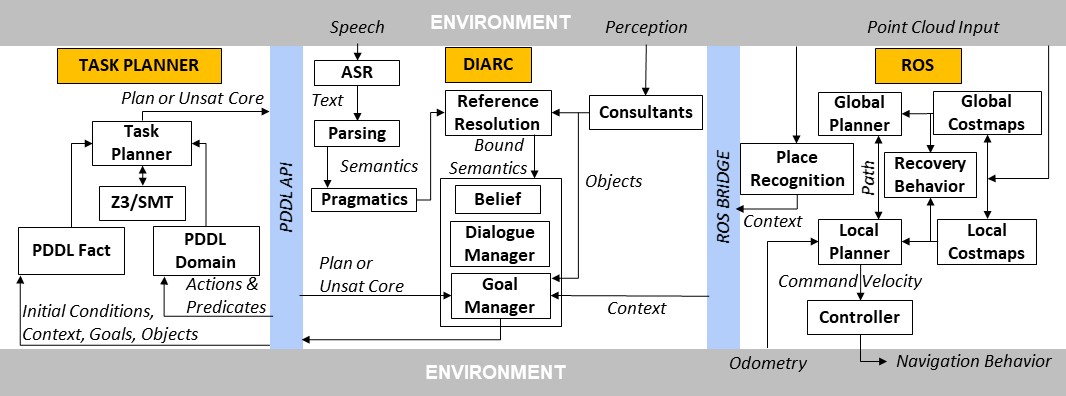

Acceptance of social robots in human-robot collaborative environments depends on the robots' sensitivity to human moral and social norms. Robot behavior that violates norms may decrease trust and lead human interactants to blame the robot and view it negatively. Hence, for long-term acceptance, social robots need to detect possible norm violations in their action plans and refuse to perform such plans. This paper integrates the Distributed, Integrated, Affect, Reflection, Cognition (DIARC) robot architecture (implemented in the Agent Development Environment (ADE)) with a novel place recognition module and a norm-aware task planner to achieve context-sensitive moral reasoning. This will allow the robot to reject inappropriate commands and comply with context-sensitive norms. In a validation scenario, our results show that the robot would not comply with a human command to violate a privacy norm in a private context.